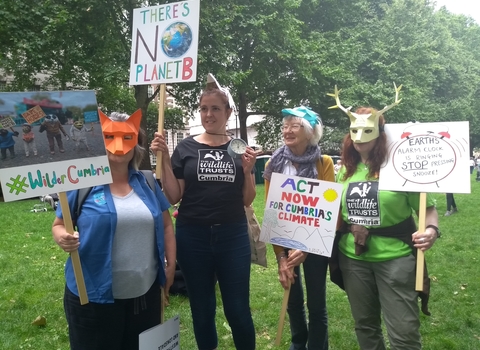As the Police, Crime, Sentencing and Courts Bill is being debated by Parliament - less than a week since it was published – we are seeing alarming new powers for the police to decide where, when and how people are allowed to protest for the things they believe in.
The Bill will place harsher penalties on anyone who breaches conditions imposed on protest and it will become much easier to successfully prosecute. And why is this a worry? Because it will severely hamper our democratic freedom to assemble and draw attention to issues and points of view that we feel are being overlooked or ignored by Parliament in relation to wildlife, the natural world and people’s connections to it.
We support the police in their efforts to ensure the safety of all those involved in peaceful protests. But we cannot afford to see an over-zealous Act of Parliament becoming a tool to silence the role protest plays within our democratic society.



